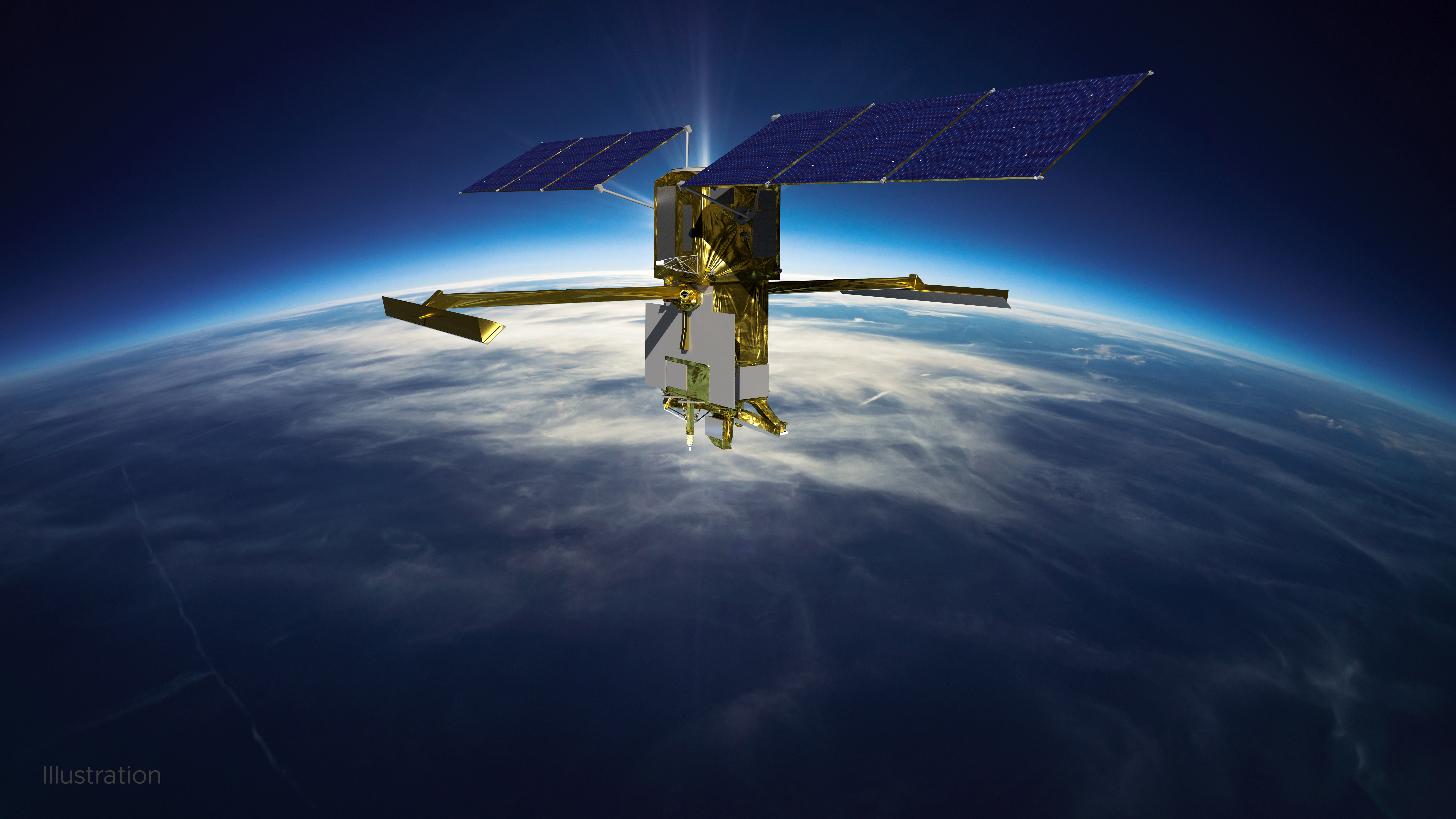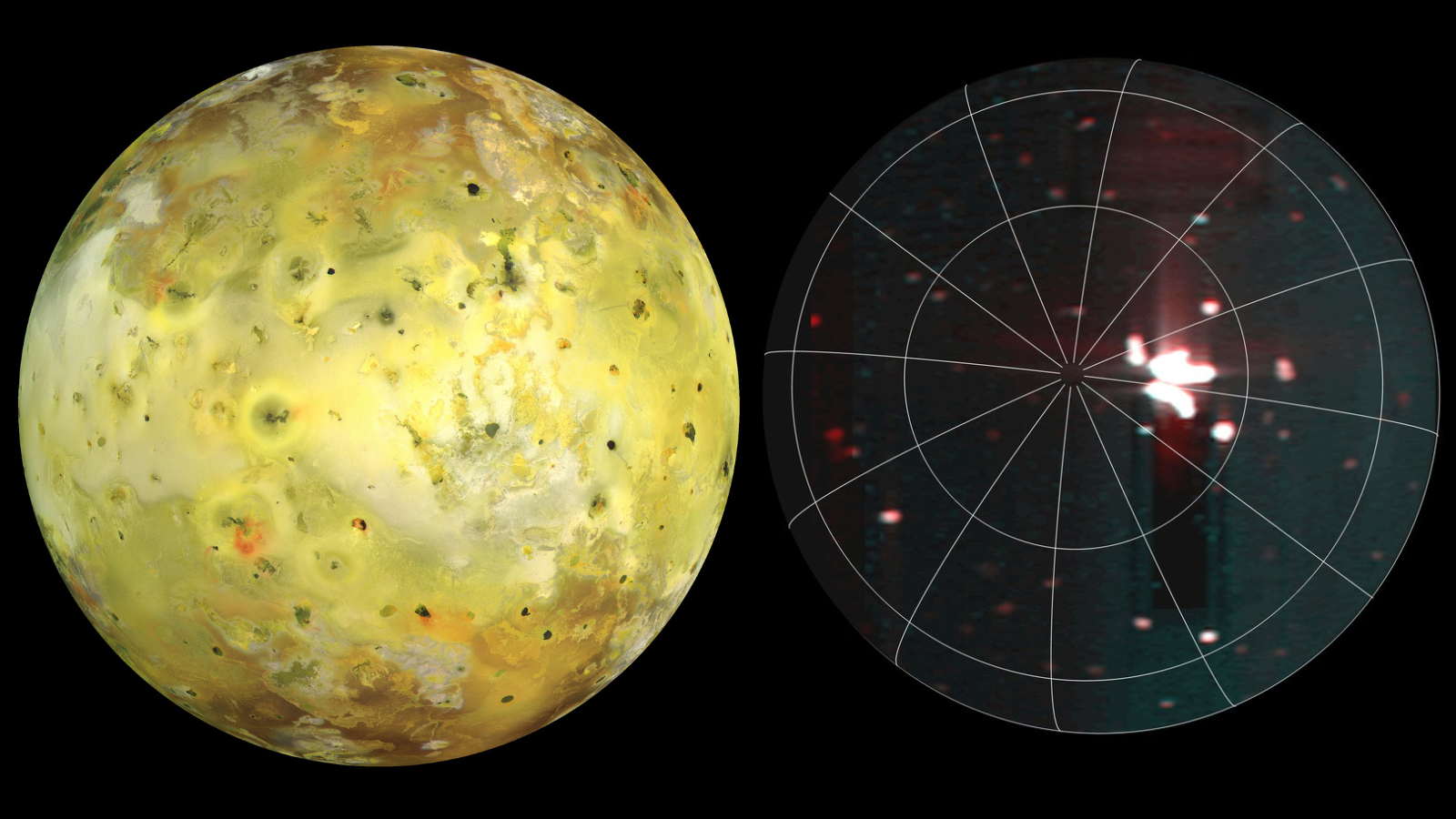NASA's SWOT water satellite suffers instrument shutdown in orbit
The Surface Water and Ocean Topography (SWOT) team is troubleshooting the instrument as they seek to have the spacecraft ready for operations in June.

A joint NASA-French satellite designed to map Earth's water in amazing detail is struggling to turn on an instrument during its setup in orbit.
The Surface Water and Ocean Topography (SWOT) satellite's main science instrument, called KARIN (Ka-band Radar Interferometer), "unexpectedly shut down" due to a problem with the high-power amplifier subsystem, agency officials wrote in a Feb. 23 blog post.
There is no cause yet found for the issue, but "engineers are working systematically to understand the situation and to restore operations," NASA officials wrote. The team is aiming to rectify the issue, as the instrument is key to mapping surface water in two dimensions to see how climate change is affecting Earth's water levels.
Related: Watch NASA's SWOT satellite unfold in space in stunning video
KARIN includes twin antennas working roughly 33 meters (10 meters) apart, or half the length of a tennis court. When functional, one of the antennas generates a radar pulse that reflects off the Earth, then both antennas pick up the signal.
"Once the KARIN instrument is up and running again, the mission will continue with its commissioning and calibration activities—planned March through June—to ensure data accuracy in preparation for the beginning of science operations in July 2023," NASA officials wrote.
A SpaceX Falcon 9 rocket launched SWOT satellite from at Vandenberg Space Force Base in California on Dec. 16. The multi-agency SWOT is co-led by NASA and France's space agency (CNES). Measuring water levels is key to helping global partners understand how carbon dioxide, a greenhouse gas, plays a role in the global warming that affects water levels.
Breaking space news, the latest updates on rocket launches, skywatching events and more!
Once ready for operations, SWOT is supposed to examine 1.3 million miles (2.1 million km) of rivers, along with coastlines and millions of lakes that are hard to sample up close. NASA also plans to make the information publicly available, alongside intuitive tools, to encourage communities to use the information for planning and tracking local water levels.
Elizabeth Howell is the co-author of "Why Am I Taller?" (ECW Press, 2022; with Canadian astronaut Dave Williams), a book about space medicine. Follow her on Twitter @howellspace. Follow us on Twitter @Spacedotcom or Facebook.

Elizabeth Howell (she/her), Ph.D., was a staff writer in the spaceflight channel between 2022 and 2024 specializing in Canadian space news. She was contributing writer for Space.com for 10 years from 2012 to 2024. Elizabeth's reporting includes multiple exclusives with the White House, leading world coverage about a lost-and-found space tomato on the International Space Station, witnessing five human spaceflight launches on two continents, flying parabolic, working inside a spacesuit, and participating in a simulated Mars mission. Her latest book, "Why Am I Taller?" (ECW Press, 2022) is co-written with astronaut Dave Williams.
